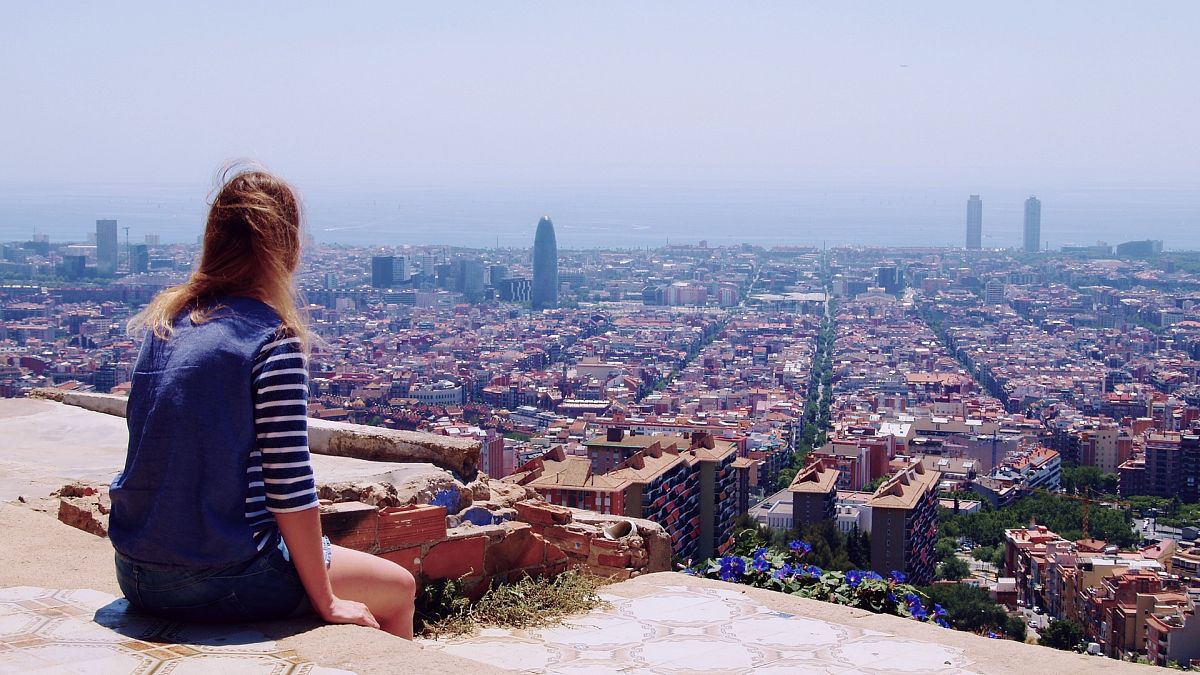11 European cities have created a network to fight the negative consequences of mass tourism.
Many residents from highly visited European cities are at their wit’s end with a tourism industry that doesn’t cease to grow.
That’s why representatives from 11 European cities with high tourism numbers met this weekend in Barcelona to inaugurate the Red de Ciudades del Sur de Europa frente la Turistización (Network of Southern European countries against tourism) — a platform that campaigns against massive tourism in these cities.
Barcelona resident Daniel Pardo is a member of a local anti-mass tourism group that helped organise the event.
“Our goal is to decrease the level of tourism in Barcelona,” he told Euronews.
Pardo compares tourism’s negative effects in his city to a factory that pollutes the environment: “Local government would have to reduce the presence of that industry,” he said.
Barcelona’s prefecture estimates that the city will receive more than 800,000 visitors in June alone. Pardo’s anti-mass tourism group is not sure the government is doing all it can to limit the number of visitors: “We see the lack of change as insufficient from the government.”
However, Barcelona’s mayor, Ada Colau, and her government presented in May a “local strategy for the administration of tourism” — a programme that focuses on reducing tourism’s negative externalities at the local level.
But Barcelona is not the only victim of mass tourism. Venice’s mayor Luigi Brugnaro decided to place turnstiles in April to limit the tourism flow.
Caterina Borelli, a Venice resident, says the problem is palpable: “Tourism puts the city’s survival at risk,” she said.
Venice receives between 27 and 30 million visitors per year while the city struggles with a rampant depopulation problem.
Borelli believes that mass tourism is a complex problem that cannot be tackled at a global level. Maria Fiano, another resident of the lagoon city agrees with Borelli, that’s why she believes the new network to fight mass tourism is important to “keep on fighting.”
Fiano, who studies the issues that tourism brings to her city, explained that there are local groups in each city that is a member of the new network. As a whole, the network is a way to group common ideas together, though the system is only starting: “there’s a lot more to put in place,” she said.
All cities seem to agree that tourism has increased real estate prices or brought developers who build with the goal of renting the apartments to tourists, Airbnb style.
But whether they can produce concrete solutions to fight mass tourism in their cities is yet to be seen.


